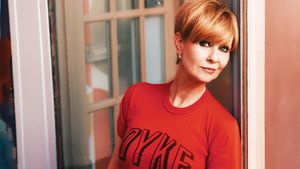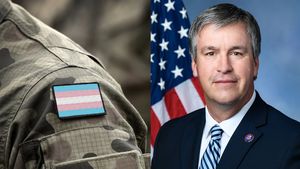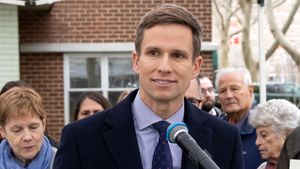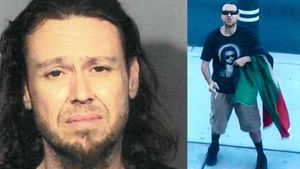One episode into its second season and the award winning, groundbreaking FX seriesPose has been renewed for a third. And for good reason: the second season's debut outperformed the first so it looks like it's only up from here.
"Pose has elevated our culture and the TV landscape like few shows before it, and we are honored to partner with co-creators Ryan Murphy, Brad Falchuck, and Steven Canals on a third season," John Landgraf, chairmain of FX Networks and FX Productions said in a statement. "Our thanks to the entire creative team, including Nina Jacobson, Brad Simpson, Alexis Martin Woodall, Sherry Marsh, Janet Mock, Our Lady J, Erica Kay, the amazing cast and crew, and everyone at Fox 21 Television Studios and FX Productions for this incredibly entertaining, enlightening, and ground breaking series."
In its first season, Pose started as a bit of a dual tale of Black and brown trans women in the ballroom scene and a white family on the rise in corporate America set in the 1980s. That season, snagged a Peabody Award and recognition around the world for its portrayals of Black and brown queer people.
For season two, the series leaned into the ballroom community and the Black and brown queer and trans cast and crew that made it groundbreaking. Skipping to the early 1990s, we have been treated to the status of ballroom post-Madonna's "Vogue" and in the thick of the AIDS epidemic, ACT UP included. In Tuesday night's episode, titled "Worth it" and written by Janet Mock, Blanca Evangelista (played by Mj Rodriguez) launches a business venture and according to the description ,"Elektra shocks the ballroom community with a bold move." In the trailer we see her approach the character played by Trace Lysette with a "proposition." Lysette replies, "Ain't no white girls in ballroom." Will we see a return of the House of Abundance?!
There are no details yet on season three but it could prove the show's end. When Out visited the set of Pose season 2, we learned that Ryan Murphy has a clear end in mind which will take place in 1995-1996 when antiviral drugs were developed to help fight HIV. "To me, the show has always been about the demolition of a community that refused to be silenced," Murphy said. "The show is really about a group of marginalized people saying, 'I have a right to be here.'"
RELATED | Pose's Marie Antoinette Scene Was Inspired by a Real Ballroom Moment








































































